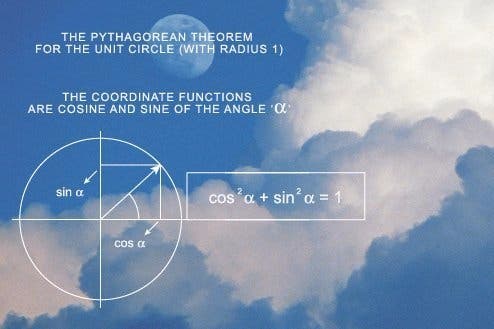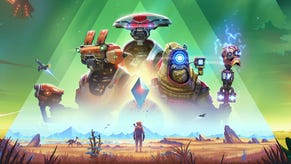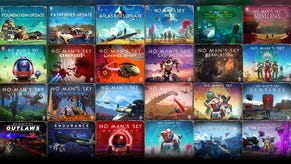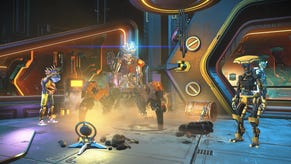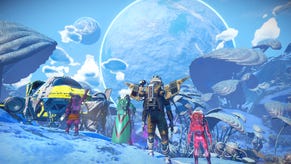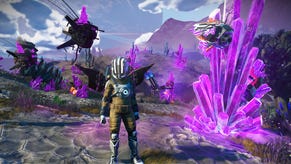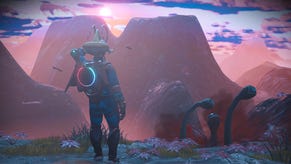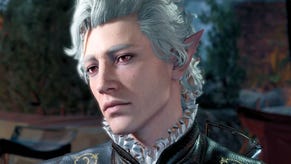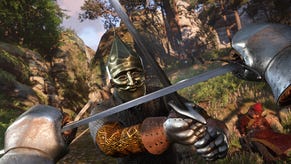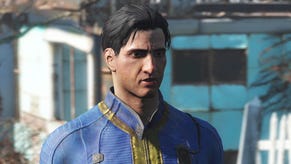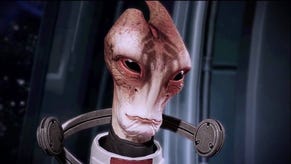Why No Man's Sky fans are worried about a patented Superformula
UPDATE: Hello Games protests innocence, accuser says he's been invited over for a "cup of coffee".
UPDATE 25/7/16 11.20am: Last week, one of 2016's biggest games came under threat from a mathematical formula created by a Belgian botanist.
PlayStation 4 exclusive No Man's Sky uses maths to create its vast procedurally-generated universe. This is well known. But whether it uses one particular patented "superformula", however, has now caused some controversy.
Belgian plant geneticist Johan Gielis - via his Dutch research company Genicap - has said No Man's Sky does indeed use his equation. In fact, Genicap spokesperson Jeroen Sparrow says, boss of developer Hello Games Sean Murray previously admitted to it in a New Yorker magazine interview - and you can read the full quote below.
Gielis, Genicap and Sparrow have not formally threatened legal action, but its statement last week suggested it did expect some kind of remuneration. "If Hello Games used our technology," Sparrow said, "at some stage we will have to get to the table".
For his part, Murray responded to the claim on Twitter and attempted to calm fears this would impact No Man's Sky's imminent release.
We've now gone back to Genicap, and Jeroen Sparrow, who was adamant about his claim:
"There have been several sources and people (Sean Murray himself, among others) who have indicated more or less directly that the Superformula has been used," Sparrow told Eurogamer.
"Yesterday Sean Murray invited us for a cup of coffee at Hello Games in order for him to clarify things. We will certainly do that."
UPDATE 21/7/16 12.45pm: No Man's Sky uses fancy maths to generate its infinite, procedurally-generated galaxy. But is the maths Hello Games used to build the game its own creation?
In 2003, a Belgian plant geneticist named Johan Gielis published an equation that can describe a large number of natural forms, such as starfish, spiderwebs, snowflakes and even crystals. He called this equation the superformula.
In short, the superformula can be used to describe many complex shapes and curves that are found in nature. The video, below, describes it in much more detail, if you're interested.
Fast forward to 2016, and a Dutch research company founded by Gielis has claimed Hello Games and No Man's Sky uses this Superformula - and it wants to talk.
The issue was first reported by Dutch paper Telegraaf, which claimed a "row" was brewing between a company called Genicap and Hello Games that could threaten the upcoming launch of No Man's Sky.
Telegraaf quotes Jeroen Sparrow, of Genicap, as saying the company did not consent to the use of the formula for No Man's Sky. This formula needs to be licensed, Sparrow said, because it's protected by a patent.
Sparrow goes on to insist Genicap does not want to stop the launch of the game, but "if the formula is used, we will have to sit at the table".
So, let's dig into the detail here. First up, what is Genicap? Well, it does not appear to be a patent troll in the traditional sense, certainly unlike the kind video game companies have run up against in the past.
The company, based in Tilburg, The Netherlands, is involved in all sorts of applications of the superformula, and is founder of the Genicap Institute, which aims to build a network of mathematicians around the world. There's talk of 3D printing and other technologies that may benefit from collaboration.
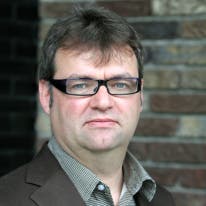
Prof. Johan Gielis is on the Genicap board, and is listed as the company's chief research officer. Jeroen Sparrow, who is quoted by the Dutch newspaper, is listed under business development. He also fields press enquiries.
How do we know No Man's Sky uses the superformula in the first place? Hello Games chief Sean Murray mentioned it to reporter Raffi Khatchadourian, for The New Yorker, back in May 2015.
The article says Murray found the superformula equation and typed it into the terrain of a No Man's Sky test planet.
Here are the relevant paragraphs from The New Yorker feature, in which Khatchadourian describes Murray's work:
There's one final mention of the use of the superformula in The New Yorker piece:
So, it seems that yes, No Man's Sky does indeed use Prof. Johan Gielis' superformula. But so what? What's the problem?
The Telegraaf quotes an ICT lawyer, called Arnoud Engelfriet, as saying if No Man's Sky infringes on Gielis' patent, then there should be "a compensation", and "distribution should be discontinued".
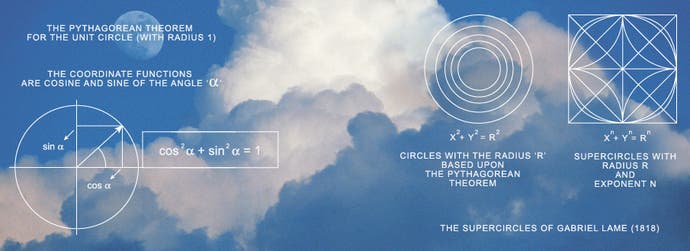
Before we get into that, let's verify Gielis' patent. Well, here it is, online in the European Patent Office's database.
According to JUSTIA, Gielis owns eight patents, but only one mentions the superformula as a trademarked name:
Here's the abstract:
"In some preferred embodiments, a new kind of graphical editor is provided. Preferably, the graphical editor utilises the SUPERFORMULA™ formula. In some preferred embodiments, a graphical editor can be used to, e.g., create 2-D images, 3-D images and/or animations."
This patent, which falls under the "computer graphics systems and methods" category, was filed in June 2004.
So, the patent appears to be legit, and directly relates to No Man's Sky, which, as a video game, employs a computer graphics system. But could its use really threaten the launch of the game?
I got in touch with Jeroen Sparrow at Genicap and asked about the company's intention. He issued me a statement:
Let's dig into this statement. It sounds like Genicap wants to make money from the superformula patent by licensing software based upon it to video game companies that want to make procedurally-generated worlds, as Hello Games has with No Man's Sky.
And it sounds like Genicap wants to talk to Hello Games about this. I asked directly whether it intends to block the release of the game, but all the company would say is it'll have to discuss the matter with Hello Games "in the normal way". That sounds a little ominous to me, but perhaps all Genicap wants to do is exchange ideas with Hello Games and learn more about how No Man's Sky uses the superformula.
I also got in touch with Sony to ask if the launch of No Man's Sky, pegged for August after a recent delay, was under threat. The company told me it had signed up the game as publisher and distributor of the physical version only. Hello Games, a rep pointed out, is the creator and developer, and publisher of the download versions on PS4 and PC.
Here's the statement:
So, no-one's talking about delaying No Man's Sky - yet. But it seems the game's use of the superformula is real. I asked Sean Murray about this yesterday, but have yet to receive a response.
The next, crucial question is, does Hello Games have to license the superformula in the first place? Here there seems to be a dispute, with some claiming yes, it does, and others saying no, it doesn't, because you can't patent the application of an equation.
There are many examples of creations used with the superformula. Genicap itself links to a superformula group on Vimeo that showcases experiments, tests and short films that work with the equation. You can even play with the superformula in your browser.
There's also the question of, why now? Genicap claims it has tried to get in touch with Hello Games for some time without luck. But the timing of the Dutch newspaper article, on the eve of the launch of the game, does appear suspect.
Is Professor Johan Gielis "proud" of No Man's Sky's use of his superformula, as Genicap claims? I've contacted Gielis, who is a visiting professor at the Faculty of Bioscience Engineering at the University of Antwerp, directly to try to find out.
Meanwhile, there's a ever so slightly nervous discussion about what this means for No Man's Sky over at the game's subReddit. Not long now - we hope.
